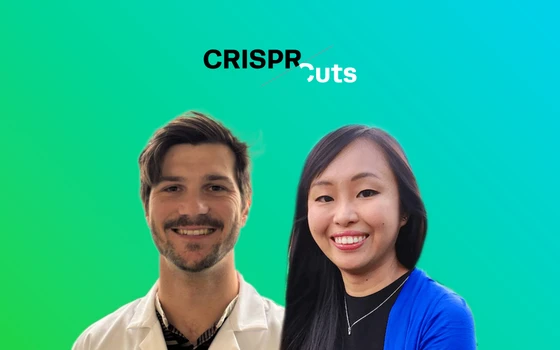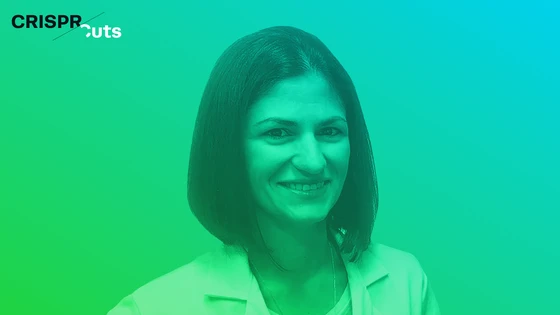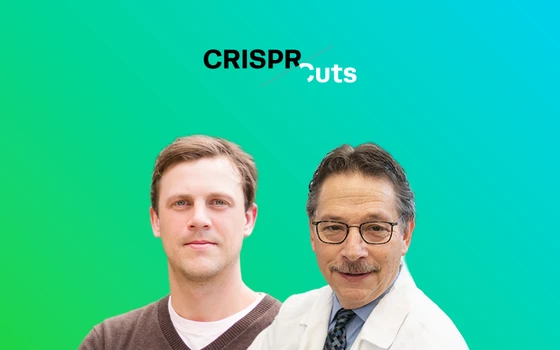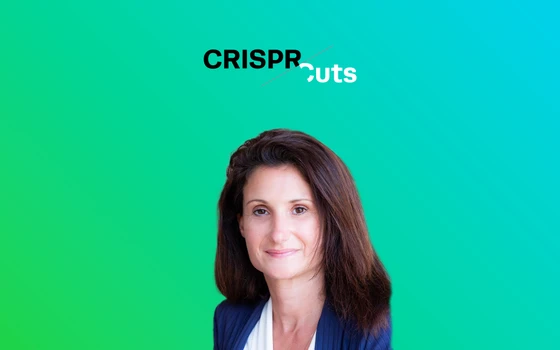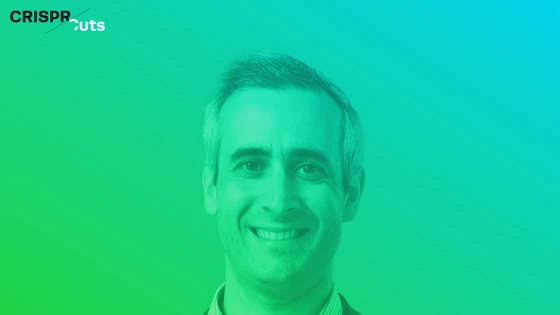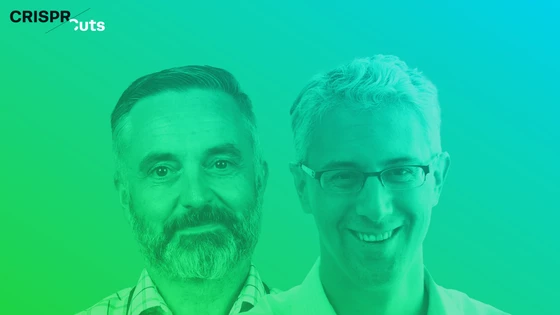Imran House, Ph.D. (Imran) and Junyun Lai Ph.D. (Jun) are Senior Scientists at the biotech start-up, oNKo-Innate in Melbourne, Australia. Both Imran and Jun have extensive backgrounds in immunotherapies, specifically working with CAR-T cells to develop therapeutics to treat cancer. In addition to their extensive experience working with CAR-T cells, Imran also worked on understanding cytotoxic T lymphocytes of cells that are important to kill virally infected cells and cancerous cells, while Jun has additional experience working on developing antibody cancer therapies.
In this interview Imran and Jun sat down with Synthego’s CRISPR cuts Podcast Hosts Kevin Holden Ph.D. (Kevin), Vice President of Science, and Rebecca Roberts Ph.D. (Bec), Science Writer for Synthego, to discuss what they do at oNKo-innate, their career transitions from leaving academics to entering the biotech industry, and how CRISPR is impacting cancer-immunotherapy development. They also discussed overcoming common obstacles faced when developing cytokine therapies and future outlooks on clinical trials using these kinds of therapies they are developing at oNKo-innate.
This interview has been edited and condensed for clarity
Evolution of Scientists: the Transition From Academics to the Biotech Industry
Bec: Can you talk a little bit about what it's like leaving academia for industry? I know a lot of people have doubts about making that jump. How did you feel about it and do you have any advice for people who are considering the shift?Imran: We both made that shift fairly recently in the last 12 months to two years. I guess we both made that same shift, but especially when you set your career goals to become a lab head and then find yourself taking a different path, it's quite a big change. I was nervous at first because obviously, you are changing the way you're going about doing the science. [Even with] not a whole lot of people jumping into the biotech industry in Australia, having made that jump, I have not looked back [because] we are able to do the science and still pursue our passions, but in a really very fast-paced way.
Jun: If I were to add on, I think in academia there's always a lot of other things apart from your research itself like mentoring, people, presenting at conferences, and all these other things that you need to do. What I liked about working at oNKo right now, and I guess broadly more in industry, is that you get to really focus on the science. So your main objective is really to get things going, and oNKo has been really supportive of that. We have been able to recruit really good people [who are] confident in their own team to work together. Being able to focus on the science, and not having to worry about other things is why we enjoy working at oNKo.
Imran: We both made that shift fairly recently in the last 12 months to two years. I guess we both made that same shift, but especially when you set your career goals to become a lab head and then find yourself taking a different path, it's quite a big change. I was nervous at first because obviously, you are changing the way you're going about doing the science. [Even with] not a whole lot of people jumping into the biotech industry in Australia, having made that jump, I have not looked back [because] we are able to do the science and still pursue our passions, but in a really very fast-paced way.
Jun: If I were to add on, I think in academia there's always a lot of other things apart from your research itself like mentoring, people, presenting at conferences, and all these other things that you need to do. What I liked about working at oNKo right now, and I guess broadly more in industry, is that you get to really focus on the science. So your main objective is really to get things going, and oNKo has been really supportive of that. We have been able to recruit really good people [who are] confident in their own team to work together. Being able to focus on the science, and not having to worry about other things is why we enjoy working at oNKo.
Kevin: Also understanding your move from academia to industry, oNKo is a smaller company, so it's more of a startup feel. Just wondering if that factored into your decision or comfort level into going into the industry. [Additionally,] since you’ve interacted with Synthego going from a small startup company into a larger company, [did] that influence your decision at all?Imran: Yeah, I think it does because I don't know if this is true of every biotech, but it's certainly true of oNKo where you have that opportunity to get in at an early point and really make that change yourself. Whether it be scientifically or outside the science, you've really got that fertile ground of a growing company that you can be a big part of which is super exciting. Now, I don't know if you join a bigger company you can make that same level of impact, probably you can, but it really feels here [at oNKo] in every aspect [you can make a difference].
Jun: I think it has been quite amazing from my perspective, you see a lot of people on the team with scientific backgrounds making the company work. You have to be really nimble as a startup company, but I think that's the really exciting part. You get to be really involved and learn a lot of different things apart from your research. It's been very impressive to see how a lot of people have been able to learn completely new things out of their comfort zone to make this company work.
Imran: Yeah, I think it does because I don't know if this is true of every biotech, but it's certainly true of oNKo where you have that opportunity to get in at an early point and really make that change yourself. Whether it be scientifically or outside the science, you've really got that fertile ground of a growing company that you can be a big part of which is super exciting. Now, I don't know if you join a bigger company you can make that same level of impact, probably you can, but it really feels here [at oNKo] in every aspect [you can make a difference].
Jun: I think it has been quite amazing from my perspective, you see a lot of people on the team with scientific backgrounds making the company work. You have to be really nimble as a startup company, but I think that's the really exciting part. You get to be really involved and learn a lot of different things apart from your research. It's been very impressive to see how a lot of people have been able to learn completely new things out of their comfort zone to make this company work.
CRISPR in Cancer Therapeutics: CAR-T, NK, TCR and Beyond

Immuno-Oncology: Equipping the Immune System to Fight Cancer
Kevin: Can you go into more depth about oNKo and the company's goals?Imran: So oNKo-innate is a biotech startup that was founded by Nicholas Huntington and Jai Rautela who met during their academic work. In their academic work, they focused on understanding natural kill (NK) cell biology and how they can be exploited for the treatment elimination of cancers and their role in protecting us from cancers in the first place. So the company is focused on developing immunotherapies [and] now a much broader range of all immune cells and how the immune system can be used to treat cancer.
Imran: So oNKo-innate is a biotech startup that was founded by Nicholas Huntington and Jai Rautela who met during their academic work. In their academic work, they focused on understanding natural kill (NK) cell biology and how they can be exploited for the treatment elimination of cancers and their role in protecting us from cancers in the first place. So the company is focused on developing immunotherapies [and] now a much broader range of all immune cells and how the immune system can be used to treat cancer.
Bec: So Jun, I know that you have an advanced CRISPR-based functional genomics platform at oNKo, and that's the team that you currently work in. Could you tell us a little bit more about that and how your screening platform addresses some of the common challenges in immuno-oncology screening?Jun: oNKo actually started as a primary NK cell screening company so we are among the first to be able to conduct primary cell NK screening on a very large scale and we have set up robust assays to look at different functionalities of NK cells. We also [have] been able to create a very robust bioinformatic pipeline to quickly [go] from hits to understanding the biology, what hits you are looking at, the phenotypes, [and their] functionalities. I think this makes us a leader in this area. Now, we are expanding beyond NK [cells] to look at T-cells. So our teams are very involved in [developing] different sorts of T-cell assays [that] are important to identify the good hits that we can then test in vivo that enhance anti-tumor efficacy.
Jun: oNKo actually started as a primary NK cell screening company so we are among the first to be able to conduct primary cell NK screening on a very large scale and we have set up robust assays to look at different functionalities of NK cells. We also [have] been able to create a very robust bioinformatic pipeline to quickly [go] from hits to understanding the biology, what hits you are looking at, the phenotypes, [and their] functionalities. I think this makes us a leader in this area. Now, we are expanding beyond NK [cells] to look at T-cells. So our teams are very involved in [developing] different sorts of T-cell assays [that] are important to identify the good hits that we can then test in vivo that enhance anti-tumor efficacy.
Kevin: It might seem from the outside at least that your primary focus at oNKo is an NK natural killer cell therapy company, but actually you do have a modality agnostic approach these days. Maybe go into a bit more detail about what type of therapies you're working on?Imran: So you're right, oNKo did start with NK cells, and that is a conception that people have. But if you look at both Jun’s and my CVs, the word NK doesn't come up very often. So you can say that the scientists that they've gone and actively recruited have a much broader range of skills, obviously T-cells, but then also myeloid cells. Every immune cell has a role to play in treating cancer and defending us from cancer so it makes sense to have fingers in all of those pies. As Jun touched on, T-cells are a big focus [but] we also are focused on therapies that can broadly activate a range of different immune cells to enhance their capacity to kill cancer cells.
Imran: So you're right, oNKo did start with NK cells, and that is a conception that people have. But if you look at both Jun’s and my CVs, the word NK doesn't come up very often. So you can say that the scientists that they've gone and actively recruited have a much broader range of skills, obviously T-cells, but then also myeloid cells. Every immune cell has a role to play in treating cancer and defending us from cancer so it makes sense to have fingers in all of those pies. As Jun touched on, T-cells are a big focus [but] we also are focused on therapies that can broadly activate a range of different immune cells to enhance their capacity to kill cancer cells.
CRISPR in Cancer Therapy eBook
Cancer affects millions worldwide, leading to deaths and treatment-related adverse health effects while significantly burdening the economy. Conventional therapies may seem adequate for a while but eventually fail patients. This treatment failure is primarily due to increased drug resistance.
The genetic basis for cancer means that it can be targeted with genome editing technologies, such as CRISPR. This explains why CRISPR genome engineering is creating a revolution in cancer therapy.
Read our eBook to stay updated on the latest trends in the field.
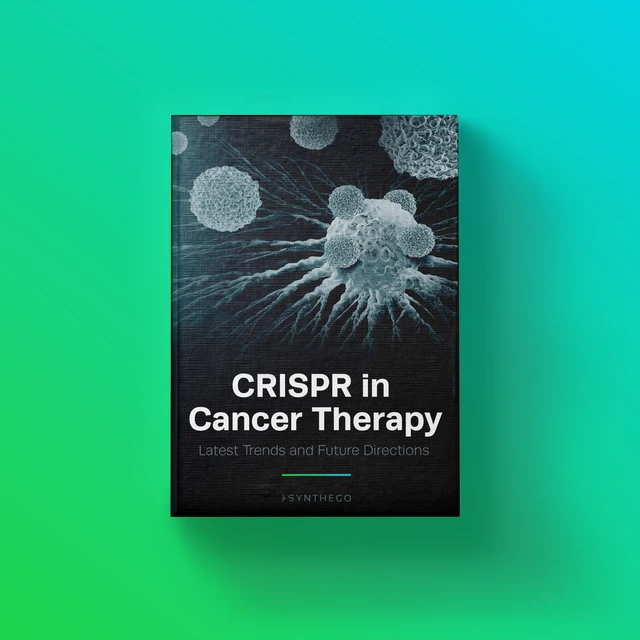
Leveraging CRISPR to Edit Primary Human Immune Cells
Bec: What are the main obstacles in CRISPR editing in primary human immune cells?Imran: There's a lot of obstacles. I think the biggest one is that every immune cell has its own challenges. So it's not every time you come to a different cell type, you have your own setup and your own electroporation conditions. The biggest challenge, and I'm going to [say] this in a very specific way for the immunologist, is that when you edit, you affect the phenotype you're looking for. So a lot of immune cells have to be activated generally to edit efficiently. [For example], If you take a tumor line, zap the cells, put 'em back into culture, they're fine. With the immune cells, they often need some kind of stimulus and by providing that stimulus, you've already pushed them down one pathway or the next. So you have to be very clever and consider it in the way that you're able to edit [the cells]. There's some really great work actually from Ian Parish's lab where they're able to edit naive T cells and not affect their phenotype [enabling you] to explore a new range of biology.
Imran: There's a lot of obstacles. I think the biggest one is that every immune cell has its own challenges. So it's not every time you come to a different cell type, you have your own setup and your own electroporation conditions. The biggest challenge, and I'm going to [say] this in a very specific way for the immunologist, is that when you edit, you affect the phenotype you're looking for. So a lot of immune cells have to be activated generally to edit efficiently. [For example], If you take a tumor line, zap the cells, put 'em back into culture, they're fine. With the immune cells, they often need some kind of stimulus and by providing that stimulus, you've already pushed them down one pathway or the next. So you have to be very clever and consider it in the way that you're able to edit [the cells]. There's some really great work actually from Ian Parish's lab where they're able to edit naive T cells and not affect their phenotype [enabling you] to explore a new range of biology.
Kevin: As a follow-up, can you tell us a little bit about doing CRISPR editing in vivo in the tumor microenvironment, and some of the difficulties and challenges you face with that?Jun: One of the biggest challenges is cell numbers. With every library, you are always thinking about cell numbers [and] how do you get enough representation of your guide library. [This] is even more [important] when you are working with very rare [cell] populations [like immune cells]. Another issue is that often, we would have to use things like the Cas9 mouse, which we know that Cas9 is really immunogenic and can skew your results in a way. In our previous academic setting, and recently published by Imran as the first author and myself as a corresponding author, we [were] able to perform RNP Cas9 editing using electroporation of bone marrow cells. [We] elegantly showed if you knock out certain genes in the bone marrow and use a combination with different types of transgenic mice, you can specifically knock out certain genes in your immune cell population of interest.
Jun: One of the biggest challenges is cell numbers. With every library, you are always thinking about cell numbers [and] how do you get enough representation of your guide library. [This] is even more [important] when you are working with very rare [cell] populations [like immune cells]. Another issue is that often, we would have to use things like the Cas9 mouse, which we know that Cas9 is really immunogenic and can skew your results in a way. In our previous academic setting, and recently published by Imran as the first author and myself as a corresponding author, we [were] able to perform RNP Cas9 editing using electroporation of bone marrow cells. [We] elegantly showed if you knock out certain genes in the bone marrow and use a combination with different types of transgenic mice, you can specifically knock out certain genes in your immune cell population of interest.
Bec: So while we're on the topic of CRISPR, can you tell us about the importance of CRISPR in this field of research both to oNKo-innate and then to the immuno-oncology field more broadly? Would this kind of unbiased target selection even be possible without a gene editing tool like CRISPR?Imran: I think the impacts of CRISPR [on] the whole scientific world have been enormous. In onco-immunology from a research perspective, the way you're able to knock out and define the roles of genes very rapidly is huge. [I also] think probably the biggest impact it's going to have is managing the CAR-T therapy space and adoptive cell therapy space, whether you're able to delete genes that can negatively regulate T-cell function or anti-cancer function, super boosting these cells to kill cancer cells.
Jun: In terms of biology, you can directly knock out genes and ask specific questions where [in the past] you would need to go down that path of generating a transgenic mouse and those things. So having CRISPR has been really useful because you can bypass this timeframe and be able to address your questions very rapidly in a very specific manner.
Imran: I think the impacts of CRISPR [on] the whole scientific world have been enormous. In onco-immunology from a research perspective, the way you're able to knock out and define the roles of genes very rapidly is huge. [I also] think probably the biggest impact it's going to have is managing the CAR-T therapy space and adoptive cell therapy space, whether you're able to delete genes that can negatively regulate T-cell function or anti-cancer function, super boosting these cells to kill cancer cells.
Jun: In terms of biology, you can directly knock out genes and ask specific questions where [in the past] you would need to go down that path of generating a transgenic mouse and those things. So having CRISPR has been really useful because you can bypass this timeframe and be able to address your questions very rapidly in a very specific manner.
Avery Posey Discusses CAR T Cell Cancer Therapies
Dr. Avery Posey, Jr. is leading the charge on CAR T cell therapy research and working towards bringing this technology to cancer patients as soon as possible. In this episode, he explains how CAR T works, what stage it’s in now, and how it will help revolutionize the treatment of cancer.

Cytokine and CAR-T Cell Therapies Are Shaping The Way We Treat Cancer and Other Diseases
Bec: I know that you're working on cytokine therapies so maybe you could fill us all in on the current landscape of cytokine therapies for cancer and how oNKo is overcoming some of those obstacles?Imran: Cytokine are really potent signals that regulate the immune system. Essentially, cytokine therapy works by taking these signals, making them in the lab, and delivering them in to a patient with cancer. In preclinical models, it really is quite extraordinary how if you're selecting the right cytokine, you have a really strong anti-tumor function. So, cytokines like IL-2 or IL-12 have strong antitumor functions when delivered in animal models. There are a lot of challenges though with these therapies and the biggest one probably is toxicity. So these are signals that are meant to be in homeopathic doses within the body and we take a whole bunch of it and dumb them under the skin and there are consequences for that.
There are a few different ways that people have gone about making these therapies more safe. One of those is making sure that they're delivered to the tumor effectively. A simple thing you can do is extend the half-life, which has a range of different benefits [like] potentially delivering lower doses and it staying around in the body for a much longer period of time. One of the things we're focused on is you can actually reduce the affinity of a cytokine for its contact receptor. By doing this, you get an immune activation that is less potent. So potentially if you couple that with some of these other strategies we've talked about, you can get a cytokine that could be used as a therapeutic that can activate immune cells in a regulated way. [This could result in] strong anti-tumor functions while eliminating a lot of the toxicities associated with cytokine therapies. It's really exciting work.
Imran: Cytokine are really potent signals that regulate the immune system. Essentially, cytokine therapy works by taking these signals, making them in the lab, and delivering them in to a patient with cancer. In preclinical models, it really is quite extraordinary how if you're selecting the right cytokine, you have a really strong anti-tumor function. So, cytokines like IL-2 or IL-12 have strong antitumor functions when delivered in animal models. There are a lot of challenges though with these therapies and the biggest one probably is toxicity. So these are signals that are meant to be in homeopathic doses within the body and we take a whole bunch of it and dumb them under the skin and there are consequences for that.
There are a few different ways that people have gone about making these therapies more safe. One of those is making sure that they're delivered to the tumor effectively. A simple thing you can do is extend the half-life, which has a range of different benefits [like] potentially delivering lower doses and it staying around in the body for a much longer period of time. One of the things we're focused on is you can actually reduce the affinity of a cytokine for its contact receptor. By doing this, you get an immune activation that is less potent. So potentially if you couple that with some of these other strategies we've talked about, you can get a cytokine that could be used as a therapeutic that can activate immune cells in a regulated way. [This could result in] strong anti-tumor functions while eliminating a lot of the toxicities associated with cytokine therapies. It's really exciting work.
Kevin: So it is a bit of a juggling act when it comes to making sure the cytokine levels are correct in a patient. How far away do you think we could be from a potential clinical trial for one of these types of therapies?Imran: There are clinical trials in other parts of the world so it's probably a lot sooner than you'd think. [A therapy developed by us] is certainly not going to happen by the end of the week. Melbourne, Australia, is a really exciting and awesome place to be running these kinds of clinical trials. We have extraordinary facilities that are currently running onco-immunology trials with a huge amount of experience and we have the capacity. On top of that, we have some very exciting collaborations with people in the States. I think it's exciting to see how quickly this work is actually going to have the potential to be seen in the clinic.
Imran: There are clinical trials in other parts of the world so it's probably a lot sooner than you'd think. [A therapy developed by us] is certainly not going to happen by the end of the week. Melbourne, Australia, is a really exciting and awesome place to be running these kinds of clinical trials. We have extraordinary facilities that are currently running onco-immunology trials with a huge amount of experience and we have the capacity. On top of that, we have some very exciting collaborations with people in the States. I think it's exciting to see how quickly this work is actually going to have the potential to be seen in the clinic.
Kevin: Can you talk about specifically what types of indication those trials might be directed at yet?Imran: Not specifically, but I think in general immunotherapies have worked. I'm not saying this is exclusively what we would be focusing on, but immunotherapies are generally targeted toward immunogenic cancer types. So these are the cancers that can be seen by the immune system like melanoma, lung cancer, and brain cancer. These [diseases] make sense to go after, but we're definitely not restricted to that. That's one of the things I'm excited about with cytokine therapy is that we have the capacity to go broader than those range of tumor types. So tumors that have not conventionally been considered treatable with immunotherapy could probably [be treated through cytokine therapies].
Imran: Not specifically, but I think in general immunotherapies have worked. I'm not saying this is exclusively what we would be focusing on, but immunotherapies are generally targeted toward immunogenic cancer types. So these are the cancers that can be seen by the immune system like melanoma, lung cancer, and brain cancer. These [diseases] make sense to go after, but we're definitely not restricted to that. That's one of the things I'm excited about with cytokine therapy is that we have the capacity to go broader than those range of tumor types. So tumors that have not conventionally been considered treatable with immunotherapy could probably [be treated through cytokine therapies].
Kevin: How do you see the field progressing at the moment with respect to immunotherapies? Recently, there was some news about some issues around some of the CAR-T therapies. What [are] your broad perspective on those particular issues and maybe some of the issues facing these types of therapies in the market?Imran: I have [my own] controversial opinion on CAR T-cell therapy, but I feel like we're not going to outsmart biology. Now of course there are extraordinary therapies treating some key cancer types. If you are able to more broadly activate the immune system and let it figure the problem out, I think you've got more of a chance of treating a broader range of cancers. So that's why cytokine therapies and other stuff we are working here at oNKo that’s the stuff that really excites me. Checkpoint blockades are a good example of that. [So] taking the breaks off and letting the immune system do its thing is a really extraordinary way of treating cancers so I am excited in that space the most.
Imran: I have [my own] controversial opinion on CAR T-cell therapy, but I feel like we're not going to outsmart biology. Now of course there are extraordinary therapies treating some key cancer types. If you are able to more broadly activate the immune system and let it figure the problem out, I think you've got more of a chance of treating a broader range of cancers. So that's why cytokine therapies and other stuff we are working here at oNKo that’s the stuff that really excites me. Checkpoint blockades are a good example of that. [So] taking the breaks off and letting the immune system do its thing is a really extraordinary way of treating cancers so I am excited in that space the most.
Bec: On the same topic of other cell therapies for cancer, if you found a target in your screening process and it could affect CAR T cells for example, how do you decide whether it's better to make the edit in those cells and create a cell therapy or use a small molecule to target that?Jun: It is definitely one of the things we are trying to address with our functional genomic screening. So not just on the T-cells, we are also trying to understand how certain drugs impact the tumor cells. Very often you will find small molecule drugs that are affecting tumor cells, but also enhancing T-cell function. I think that information will be critical when you think about whether you want to do more of a CRISPR-based targeting of your T cells versus if you're looking at more small molecules.
Jun: It is definitely one of the things we are trying to address with our functional genomic screening. So not just on the T-cells, we are also trying to understand how certain drugs impact the tumor cells. Very often you will find small molecule drugs that are affecting tumor cells, but also enhancing T-cell function. I think that information will be critical when you think about whether you want to do more of a CRISPR-based targeting of your T cells versus if you're looking at more small molecules.
Bec: On a related note, I know that cytokines can be monotherapies, but do you think it's more likely that they will be used in the future as monotherapies or as adjuvants for things like CAR-T therapies, chemo, or something like that?Jun: I think it depends on the cancer types that you are thinking about targeting [because some] may need additional ways to boost the immune system. There is also interest in thinking about ways we can perhaps sensitize immune cells a bit more to cytokine therapy. It really depends on the biology when you think about what rational ways [are good] of approaching [treatments].
Jun: I think it depends on the cancer types that you are thinking about targeting [because some] may need additional ways to boost the immune system. There is also interest in thinking about ways we can perhaps sensitize immune cells a bit more to cytokine therapy. It really depends on the biology when you think about what rational ways [are good] of approaching [treatments].
Potential Future Biotherapeutic Area of Focus
Kevin: I know we've spent a lot of time talking about cancer-based therapeutics and then clearly here cytokine-type therapies. Any thoughts about where maybe you could take a platform like the one you've developed next in other types of biotherapeutic areas for oNKo?Imran: I think anything that the immune system is involved in, there's an application here for that. So autoimmunity is the first one that comes to mind. Obviously, cytokines play a critical role in driving disease in those cases. So if you're smart about which cytokines you use and the way you target them, you could definitely play a huge role in a range of different immune-regulated disorders.
Imran: I think anything that the immune system is involved in, there's an application here for that. So autoimmunity is the first one that comes to mind. Obviously, cytokines play a critical role in driving disease in those cases. So if you're smart about which cytokines you use and the way you target them, you could definitely play a huge role in a range of different immune-regulated disorders.
CRISPR Revolution in Cell & Gene Therapy
CRISPR cell and gene therapies are revolutionizing medicine, offering potential cures for cancer, genetic disorders, and infectious diseases. In this eBook, we explore the promise of CRISPR therapies, the main challenges in clinical development, and potential solutions to these obstacles.
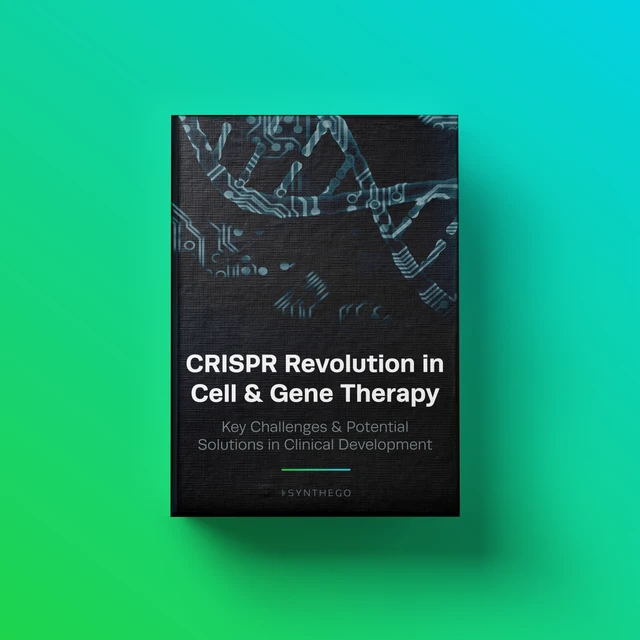
To see what other cool work Imran, Junyun, and the oNKo-Innate Team are doing, check out their website at www.onko-innate.com (LinkedIn and X: @oNKo_innate)
To connect with Imran and Junyun, check out their LinkedIn and social media handles below:
Imran House, Ph.D.
X: @ImranHouse
Junyun Lai, Ph.D.
X: @JunyunLai
